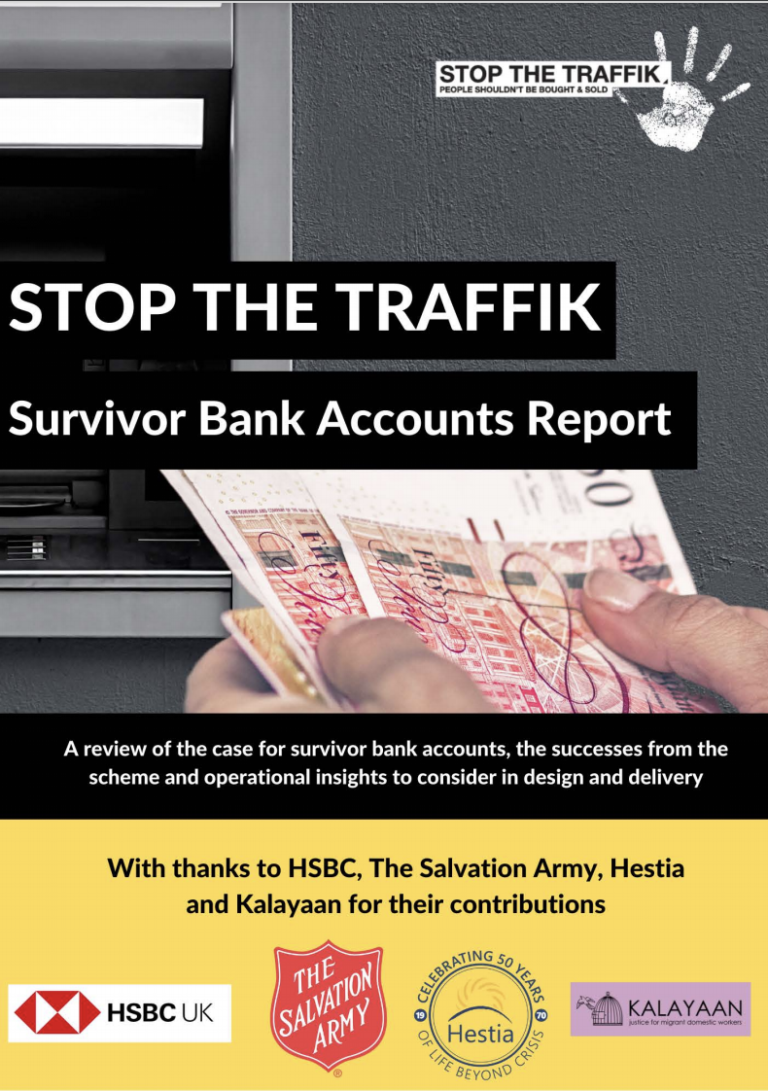Survivor Bank Accounts, designed specifically to be set up without proof of identification or an address, are a positive form of recognition and empowerment for survivors. They provide financial independence and demonstrate the importance of providing secure banking to those vulnerable.
Stop the Traffik has consulted with HSBC, The Salvation Army, Hestia and Kalayaan , who all have experience in using the scheme. The briefing available for download below outlines the case for survivor bank accounts by assessing the barriers that survivors face within the financial system, as well as the problems with not having an account and the positive impact an account can have. The importance of branch staff training is emphasised, with operational insights outlined for consideration in design and delivery.

